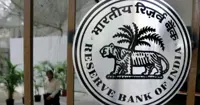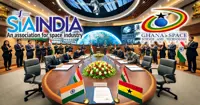India, which has built up a huge trade gap with China over the years, has sought to limit zero duty market access to a lesser number of Chinese goods compared to other members participating in the negotiations for the proposed Regional Comprehensive Economic Partnership (RCEP) mega trade deal.
India will press for better trade deal with China as part of the ongoing negotiations for the proposed mega trade deal, which is slated to be concluded next year, official sources said.
India is also seeking more time to eliminate duties on Chinese goods as part of the deal.
The proposed Regional Comprehensive Economic Partnership (RCEP) is a free trade agreement being negotiated by 16 countries, including 10 Asean members (Brunei, Cambodia, Indonesia, Malaysia, Myanmar, Singapore, Thailand, the Philippines, Laos and Vietnam) and their six free trade agreement partners - India, China, Japan, South Korea, Australia and New Zealand, since November 2012.
On the other hand, members participating in the RCEP want India to remove tariffs or customs duties on about 90-92 per cent items that it trades with the Asean countries, with which it has a free trade agreement, and Japan.
With the other countries - China, Australia and New Zealand - discussions are on for eliminating duties on 80-86 per cent of the products.
India has asked for 20 years to remove these duties. But, with China, it wants more time for elimination of tariffs.
With China, however, India is clear that given the trade deficit, China should give yield more than India and take a longer staging period.
Lowering or eliminating duties for China will flood Indian markets with Chinese goods, especially in products like steel and other metal, electronic goods, processed food and a host of other goods, and domestic industries and government departments are raising concerns over the presence of China in the RCEP group.
India has a trade deficit with 10 countries in this grouping. The trade gap with China, Korea, Indonesia and Australia increased to $63.12 billion, $11.96 billion, $12.47 billion and $10.16 billion, respectively, in 2017-18. It was $51.11 billion, $8.34 billion, $9.94 billion and $8.19 billion in the previous financial year.
The commerce ministry will undertake a study on the implications of the agreement for Indian industry. The ministry will also undertake intense negotiations with the partner countries, other departments, industry and concerned stakeholders.
Since almost all rounds of negotiations are to be based on bilateral discussions, the ministry now plans to intensify negotiations bilaterally on a give and take basis in services and goods.
In the service sector, India is pushing for business visitor commitment for smooth movement of professionals.
India will focus on boosting its exports to the US and other global markets as Chinese shipments become unattractive amid a trade war between the world's biggest economies, trade minister Suresh Prabhu said.


.webp)




























